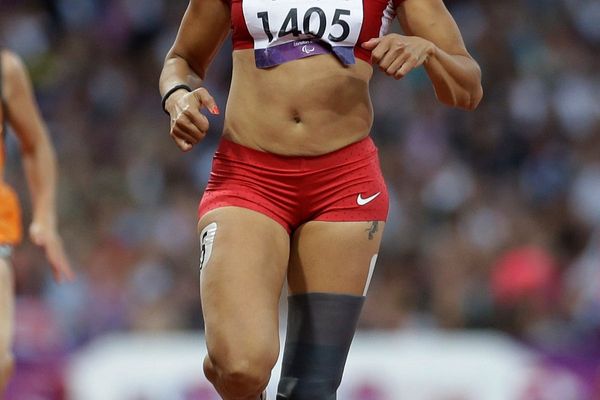
The New York job looked like a done deal.
By last August, plans for a trade commissioner to represent New South Wales were advanced enough that briefs had been prepared for senior state government ministers.
Interviews had been conducted, a preferred candidate had been found, and the head of Investment NSW, Amy Brown, was preparing to send a brief to the then deputy premier, John Barilaro, on the recruitment effort.
On 2 August, Brown’s executive assistant sent an email to senior staff at a recruitment agency asking them to “prioritise” a report on the New York job.
“Amy has advised she would like to send the Americas report to the DPO [deputy premier’s office] today,” she wrote.
Less than two hours later, the report had been sent back. Internal emails seen by the Guardian suggest the briefing may not have occurred that day, but it was certainly a priority.
“We are hoping to get this up to the DPO as soon as possible,” Brown’s assistant wrote two days later.
That Barilaro was kept well-abreast of the hiring process is no surprise. As the state’s trade and industry minister, he had been the driving force behind the establishment of the six commissioner jobs spread across the globe.
And there was reason for close scrutiny of the candidates. The lucky recipient of the New York job would receive an annual taxpayer-funded salary of $500,000, plus expenses. That’s about $150,000 more than the deputy premier received.
The preferred candidate was Jenny West. While Investment NSW and the government insisted the highly credentialed former public servant and businesswoman did not receive any “formal” offer, the Guardian understands she was told that it was hers.
But the late-afternoon announcement last Friday that Barilaro himself would be the state’s new trade commissioner has caused a firestorm in Macquarie Street. Labor is calling for him to be stripped of the job, two separate inquiries are under way and in the government itself MPs are furious that an ambitious pre-election budget has been overshadowed by controversy.
“The timing of this is just terrible,” one minister told the Guardian.
“I don’t get or understand how the minister who was in this portfolio less than 10 months ago is now the preferred candidate in the job.”
Many are asking the same question.
A mysterious change of direction
As Investment NSW prepared to brief Barilaro, it was doing the same for other senior ministers. Documents obtained by the Guardian show that on 6 August public servants finalised a brief for Dominic Perrottet, the treasurer at the time and now state premier. The briefing pack included the selection panel’s final report on the New York candidates.
There was no immediate suggestion the ministers weren’t happy with the preferred candidate for the job. On 23 August Kylie Bell, a senior employee at Investment NSW, seemed confident the agency was close to announcing the New York commissioner.
She asked a colleague to “get started” on the “media release shells” for the New York position, as well as other roles in Mumbai and Singapore.
“I think we are close to be able to announce NY and the others will probably be ready to go sometime in September,” she wrote.
On 30 August, a senior HR manager was discussing working on a contract for the job: “We can just focus on the NY contract today,” she writes.
What happened next remains shrouded in mystery, but this week the Guardian was able to piece together some of the puzzle.
By September, the offer to West had been rescinded and a second round of recruiting began. Investment NSW, the premier and trade minister, Stuart Ayres, said this week that the process was handled by the outside recruiting firm, NGS Global.
But on Thursday the Guardian revealed that – on the day before Barilaro announced he was quitting parliament due to the personal toll of public life – Brown was emailing NGS to tell them their services were no longer required.
(December 4, 2019) Former NSW deputy premier John Barilaro announces plans to establish six trade commissioners in cities including Tokyo, New York and London.
(May 18, 2021) A shortlist of four names is prepared for the New York-based trade job.
(July 6, 2021) Interviews are conducted with the four candidates, including Jenny West, who is identified as meeting or exceeding all of the job criteria.
(July 16, 2021) The first of the six positions, based in Tokyo, is announced by Barilaro after being signed off on by cabinet.
(August 4, 2021) An internal update states that a preferred candidate has been identified for the New York job. The Guardian understands that candidate was West.
(August 6, 2021) Staff within Investment NSW prepare a brief for then-treasurer Dominic Perrottet, including the selection panel’s final report for the New York job.
(August 23, 2021) Kylie Bell, the executive director of trade at Investment NSW, asks a colleague to “get started” on the “media release shells” for the New York job.
(September 23, 2021) An email stating that a draft contract for the New York position is in the “final stage” of being written is sent, but the email has a line struck through it, suggesting West is no longer the preferred candidate.
(October 3, 2021) Investment NSW CEO Amy Brown tells recruiter NGS Global to stop their search as the New York job would now be handled as an “internal matter”.
(October 4, 2021) John Barilaro announces that he plans to resign from parliament, citing the toll of public life.
(October 13, 2021) An internal HR email states a “preferred candidate” has been identified for the New York position.
(December 17, 2021) The New York position is readvertised in the Australian Financial Review.
(December 31, 2021) Barilaro finishes as the Member for Monaro
(April 30, 2022) Deputy Liberal Party leader and trade minister Stuart Ayres informs Perrottet of Barilaro’s selection for the position.
(June 17, 2022) Barilaro’s selection is publicly announced.
The trade commissioner jobs, she wrote, would now be “ministerial appointments”, meaning the hiring process for the outstanding jobs would be “ceased”. And, Brown said, the New York job would be handled “as an internal matter”.
“Thanks for your patience and understanding,” she wrote to the recruiter.
“As you will no doubt appreciate, most of the above has been outside of our control.”
This week the Guardian revealed – and the premier later confirmed – that two of the trade commissioner positions received a final signoff from cabinet before being approved. He said that was an “error”, and the subsequent posts were all signed-off on by Brown.
She was, he said, the “final-decision maker”, a responsibility which, Investment NSW told the Guardian this week, did not require a conflict of interest declaration, despite having reported directly to Barilaro before he quit parliament.
“The executive did not make the decision,” Perrottet said this week. “It was a decision made by the public service following an independent recruitment process.”
But even after the roles stopped being sent to cabinet, the public service was still keeping ministers informed.
Public servants discussed getting premier’s ‘approval’
As recently as November last year, Investment NSW staff were discussing getting the “approval” of Perrottet – by this time the premier – for one of the trade commissioner jobs.
While the email, seen by the Guardian, does not state which role is being discussed, the staffer says that a meeting between Stuart Ayres and one of the candidates the day before “went well”.
“The [minister] is happy to progress to the premier for his approval,” they wrote.
“Timing unknown.”
Another public servant responds: “Any action required on our end currently to progress this or will Minister Ayres’ office deal directly with the Premier’s on these approvals?”
The Guardian understands senior ministers have been questioning why Barilaro’s appointment was not presented to cabinet, given much more minor government jobs regularly get cabinet signoff.
As one minister said: “If in doubt, send it to cabinet.”
The government now finds itself staring down the barrel of two separate inquiries into the saga. On Wednesday, the upper house inquiry, which will examine how the hiring process unfolded. Brown will be its first witness.
A second inquiry, announced by Perrottet, will be led by the Department of Premier and Cabinet secretary, Michael Coutts-Trotter.
While the premier has said he will publish the findings of that review, there are questions about whether it should have been handled externally, given any review will have to examine whether concerns were raised within the public service about how the process was handled.
For the Labor opposition, the timing of the scandal is a gift. This week the opposition leader, Chris Minns, said Barilaro would have to “come home” if Labor wins the next election in March.
“We’re expected to believe a global search took place, not just the 8 million people who live in this state but around the entire world to represent the economic and trade interests of the people of NSW, and the bloke they picked was the guy they sat next to for 12 years who just happened to be the leader of the National party,” he said.
“If we win the next election he’s going to have to come home. This is a farce.”







